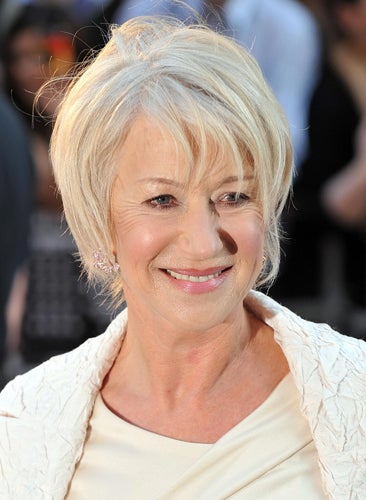Dame Helen is live and in HD as National Theatre's Phèdre is beamed into cinemas worldwide

Tonight, when Nicholas Hytner's National Theatre production of Racine's Phèdre, starring Helen Mirren, is broadcast via satellite from the Lyttelton to 70 cinemas in the UK, and 200 around the world, a 21st-century solution will be provided to a perennial question. It has been pondered by every NT director, from Laurence Olivier in the 1960s to Nicholas Hytner today: "How do we ensure that as many people as possible can see live performances that can play only to around 1,000 at a time?"
Surely television can "tour" NT work into every home in the land? More than a dozen productions, such as Alan Ayckbourn's Bedroom Farce (1977) and the 1997 King Lear, with Ian Holm, have been impressively transplanted to television studios after their NT runs. But stage performances change to suit camera angles and five-minute takes; TV viewers sitting home alone do not see what theatregoers saw and, by their collective reaction, influenced. The problem with the "authentic", cheaper alternative, observed Richard Eyre in 1996, while still NT director, is that "if you just squirt a camera at a stage... it will always look clumsy and undernourished compared to TV drama... It [is] a wholesale dilution of the theatrical original."
What, though, if a play were relayed live from stage to cinema screens, watched by hundreds in every location?
"We can be more sophisticated than opera in the way we film," says Hytner. With as few as half a dozen performances per production, if opera houses reduced seating to accommodate cameras they would suffer a much greater loss of revenue than the National, with its runs of 50-plus performances and lower seat prices. As Hytner found when his Royal Opera House production of Verdi's Don Carlos was relayed from Covent Garden to Trafalgar Square last summer, "opera has to squeeze cameras into not very good positions, to shoot pre-sold, full-price performances, and they can't rehearse the filming, whereas we can." Robin Lough, the NT Live director, will position six cameras, reducing the Lyttelton's capacity and slightly impeding the view for some patrons on the night (which is why tickets for 25 June were held back from advance sale and priced at £10).
Phèdre has already been performed 14 times in public, and there have been two four-hour rehearsals with the company to allow for HD camera-friendly adjustments to make-up and lighting. Hytner and Lough will review this footage before finalising the camera script, which will switch from close-up to medium, wide or tracking shots, although Hytner will encourage his cast to perform for the house, not the cameras, and expects the editing to follow the rhythm of a sports telecast rather than a movie: "With football, the TV director's job is to choose the angle viewers would most like to see if they were at Wembley. That's the aesthetic we're aiming for: to be NT Live audiences' eyes and ears, and show the stage area they'd be most likely to look at in the Lyttelton."
Some NT Live screens are as wide as the Lyttelton stage, and even the smallest can preserve the human scale at the heart of theatrical performance better than the largest wide-screen TV.
Phèdre's energy and pacing will reflect the responses of cast and audience, and although cinemagoers at Cambridge's Arts Picturehouse or Kino Aero in Prague will be excluded from that relationship, they will, surely, respond to one another, as witnesses to a unique, live event.
Subscribe to Independent Premium to bookmark this article
Want to bookmark your favourite articles and stories to read or reference later? Start your Independent Premium subscription today.

Join our commenting forum
Join thought-provoking conversations, follow other Independent readers and see their replies